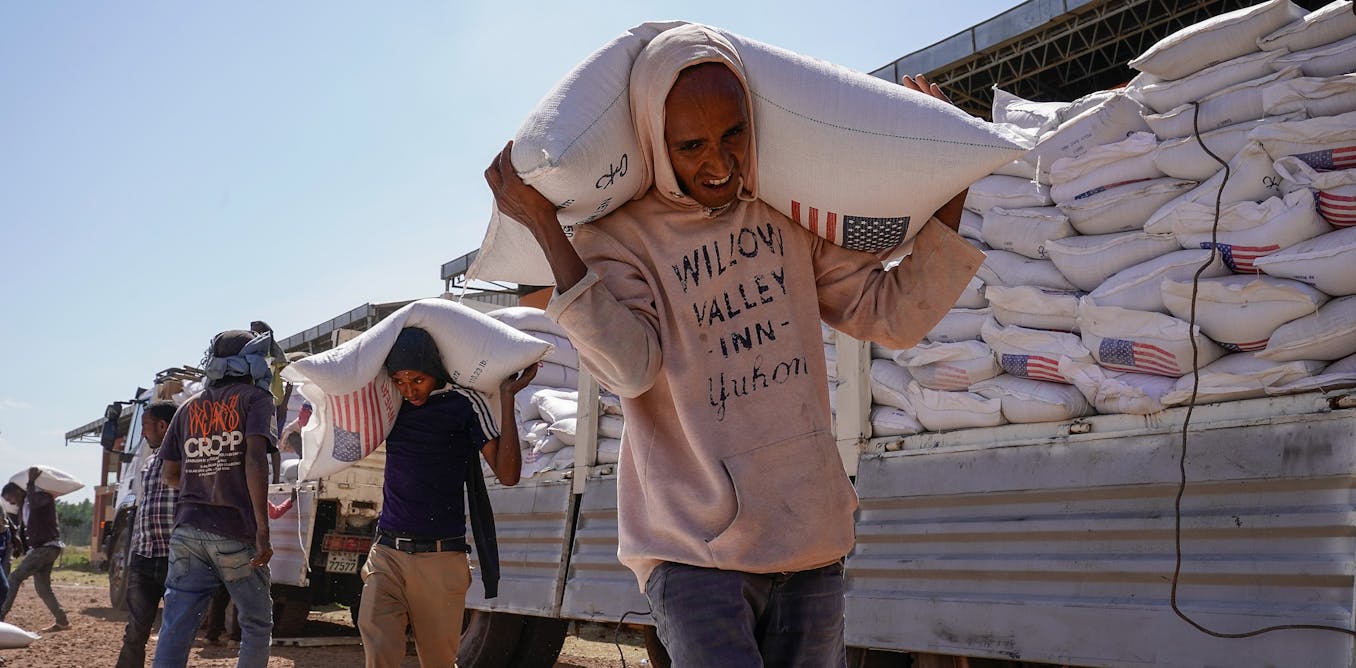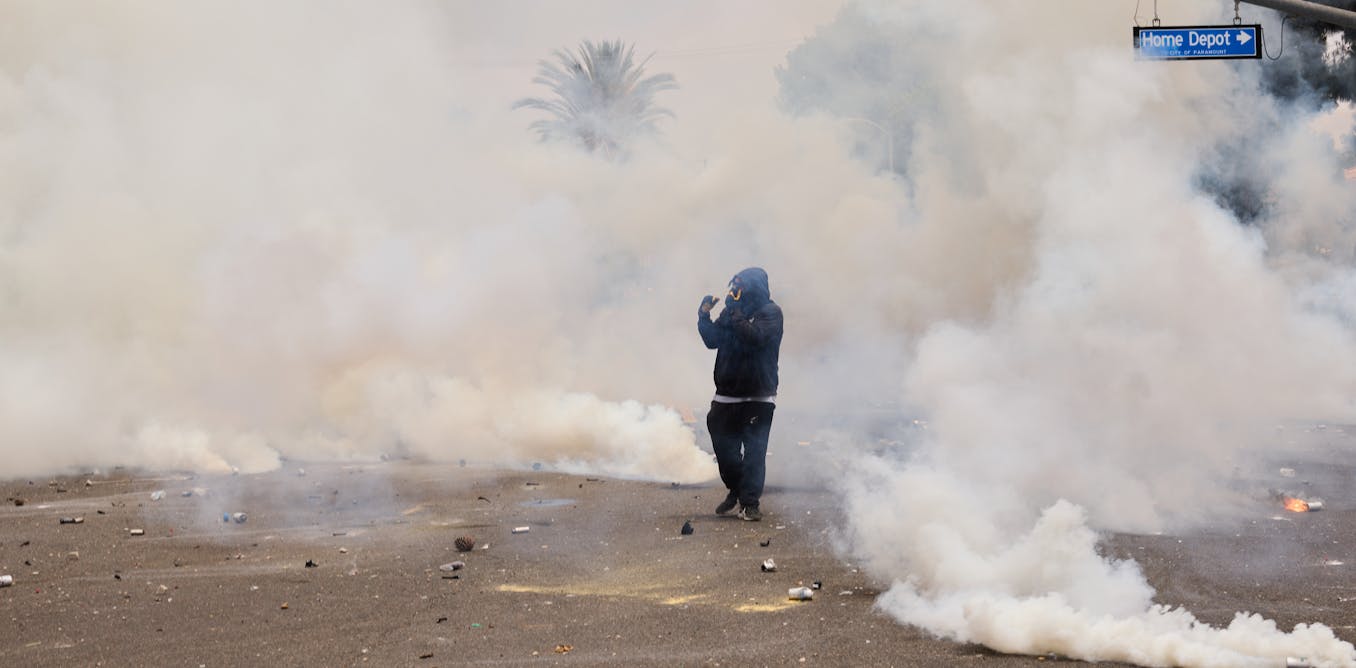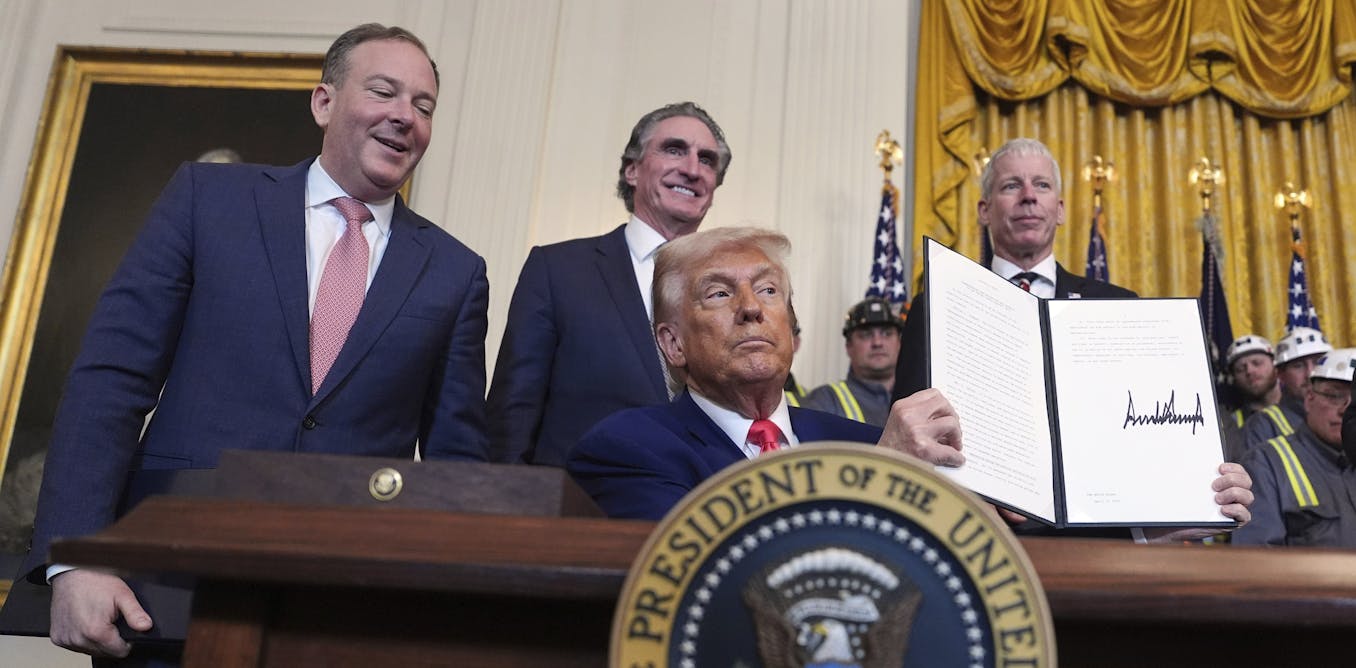“No famine has ever taken place in the history of the world in a functioning democracy,” observed Nobel Prize-winning economist Amartya Sen in his 1999 book “Development as Freedom.”
My recent research doesn’t tackle Sen’s central argument – premised on the belief that democratic leaders prioritize food security because they cannot win reelection if the most basic needs of their constituents are not met – head on. Instead, I explored an auxiliary question: Do democratic governments cope better than their autocratic counterparts when their countries are confronted by sudden drops in food aid?
The answer is a resounding “yes.”
I came to that conclusion by analyzing food insecurity data from 110 countries from 2000 to 2020.
Food aid – a form of international assistance in which donors give food, or funds to buy food, to low- or middle-income countries – has recently fallen, reaching fewer people in 2024 than in 2023, according to estimates from the World Food Program, a United Nations agency. Major donors like Germany and the United States have reduced or suspended aid, citing budgetary constraints or concerns about theft, including to some of the neediest countries, such as Afghanistan, Haiti and Ethiopia. Adding to concerns, the Trump administration has signaled that it may move to “close down” the U.S. Agency for International Development, or USAID, the largest provider of global food assistance.
At the same time, the world has faced a significant hunger crisis since 2019 due to a combination of factors, including the impacts of civil conflict, climate change and stubbornly high prices.
I wanted to determine whether food aid cuts and rising hunger are connected, and if democracy matters. I started by cataloging instances when countries had experienced significant reductions in food aid inflows. I then looked at whether those “aid shocks” were followed by upticks in food insecurity, using data from the U.N.’s Food and Agricultural Organization. Finally, I assessed whether the relationship between aid shocks and food insecurity varied across countries and political systems.
The results indicate that autocracies experience heightened food insecurity when sharp cuts to international food assistance occur, whereas democracies keep their people fed.
For example, autocratic Eswatini, an absolute monarchy in southern Africa that was formerly known as Swaziland, experienced a food aid shock in 2010 that was followed by a 2 percentage point uptick in the prevalence of undernourishment. In contrast, when Mongolia, a robust democracy, experienced an aid shock in 2007, undernourishment actually declined by about 3 percentage points.
On the one hand, this isn’t entirely surprising, as democratic leaders – unlike their autocratic counterparts – have to face the public in national elections, and winning is difficult when people are experiencing widespread hunger. Because leaders in a democracy are more accountable to their citizens, they make more of an effort to make up for the lost aid or cushion the adverse effects of food aid shocks on their populations.
On the other hand, democracies often struggle to move quickly, due to their complex policymaking processes and checks and balances. This may lead some to conclude that it is harder for them to move nimbly during a foreign aid crisis.
Why it matters
While many question the effectiveness of aid, including food aid, my findings suggest that cutting it – as some critics suggest – will have negative effects on the health and well-being of vulnerable people around the world. Already, food systems experts have expressed fears over the Trump administration’s proposed aid freezes and the potential breaking up of USAID.
For this reason, donor nations should be cautious about halting or rapidly shifting their foreign giving.
At the same time, donor governments, which are mostly Western democracies, have often used aid as a tool for promoting democratic institutions, at times cutting off aid to autocratic countries that abuse human rights. While this practice seems sensible to donors that wish to punish or discourage autocrats, my findings raise a significant concern: People living in autocratic countries may be left starving when aid is withdrawn.
And donor nations could take further steps to support democratization and democratic resilience, particularly in countries that are vulnerable to food insecurity. For example, donors can engage with civil society groups in aid-recipient nations, empowering them with tools and techniques to promote, protect and preserve democratic institutions. This way, countries will be more resilient and less likely to fall into crisis levels of hunger if and when aid cuts occur.
What’s next
While there is a tendency to treat governments as either “democratic” or “autocratic,” that approach obscures a good deal of nuance. Democracies vary in terms of their rules, procedures and governing structures. Likewise, autocracies can differ greatly from one another, with military regimes, personalist dictatorships and party-based autocracies each having unique characteristics.
Moving forward, I hope to dig into these varieties of democracy and autocracy to see how countries representing each respond to aid shocks.
The Research Brief is a short take on interesting academic work.




